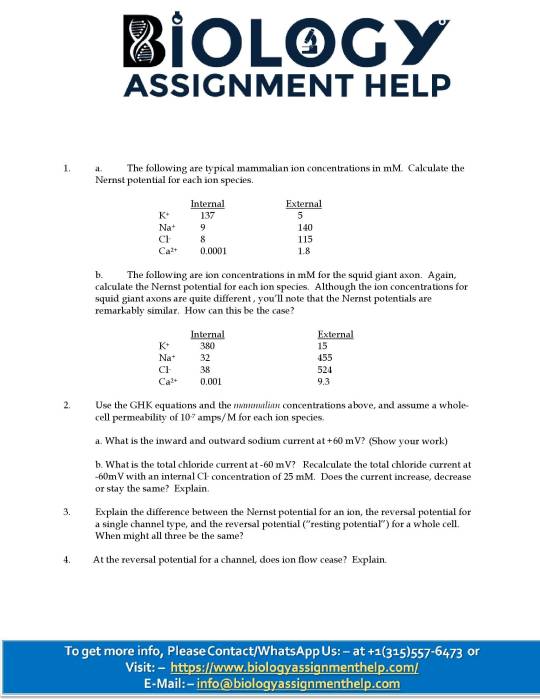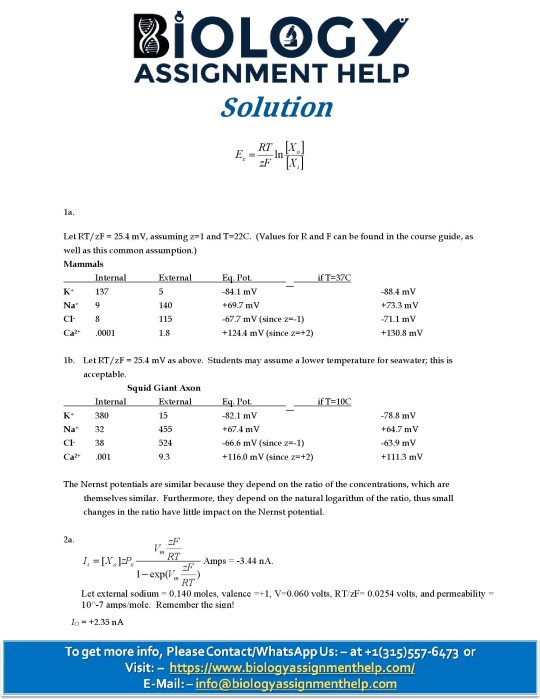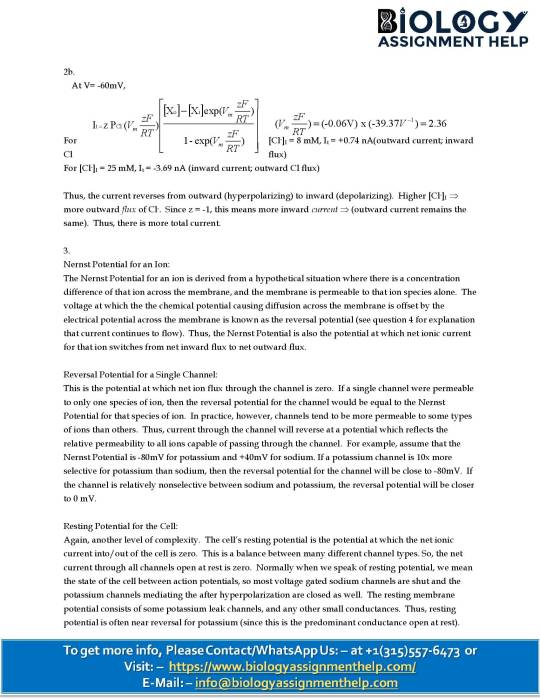Biology Assignment Help has always provided students with an affordable assignment solution. We are strongly pledged to provide the solution to students within the stipulated deadline. All assignment provided by us is done from scratch so that you will never get plagiarized work from us. The areas we cover in biology include; Anatomy, Microbiology, Molecular Biology, Ecology, Biostatistics, Cell Biology, Parasitology, and more. Get in touch with our team at: [email protected] or visit us at: https://www.biologyassignmenthelp.com/.
Don't wanna be here? Send us removal request.
Text
Decoding the Molecular Ballet: DNA Damage Repair in Molecular Biology

Embarking on the journey into Molecular Biology is a fascinating endeavor, and at times, it can be as challenging as the intricate processes happening at the cellular level. As students navigating the complex web of molecular mechanisms, gaining a profound understanding of DNA damage repair is crucial. In this blog, we will delve into a challenging question that probes into the molecular intricacies of DNA damage repair. Whether you are seeking insights for your studies or are simply a curious mind eager to unravel the secrets of the cellular world, join us on this expedition through the molecular ballet of DNA damage repair. For those seeking additional support in their studies, we'll explore the role of molecular biology Assignment Help in enhancing comprehension and academic success.
Question: "Explain the molecular mechanisms underlying the process of DNA damage repair, highlighting the role of key proteins and signaling pathways involved. Additionally, discuss how dysregulation of these repair mechanisms can contribute to genomic instability and the development of various diseases, including cancer."
Answer: DNA damage repair is a complex and highly regulated process crucial for maintaining genomic integrity. One of the primary forms of DNA damage is caused by environmental factors, such as ultraviolet (UV) radiation, ionizing radiation, and chemical mutagens, as well as endogenous sources like reactive oxygen species (ROS) generated during normal cellular metabolism.
The repair of damaged DNA involves several key proteins and signaling pathways. One of the major repair mechanisms is the Base Excision Repair (BER) pathway, which addresses small, non-helix-distorting lesions such as oxidized or deaminated bases. DNA glycosylases recognize and remove the damaged base, creating an abasic site. The apurinic/apyrimidinic (AP) endonuclease then cleaves the DNA strand at the abasic site, allowing further processing and restoration of the correct base.
For more severe DNA damage, the Nucleotide Excision Repair (NER) pathway comes into play. NER repairs bulky lesions that distort the DNA helix, such as those induced by UV radiation. The process involves recognition of the lesion, excision of the damaged segment, and DNA synthesis to fill the gap.
Homologous Recombination (HR) and Non-Homologous End Joining (NHEJ) are critical pathways for repairing double-strand breaks (DSBs). HR utilizes an undamaged sister chromatid as a template for accurate repair, while NHEJ directly ligates the broken ends. The choice between HR and NHEJ is influenced by the cell cycle phase and the nature of the DNA ends.
Several key proteins play pivotal roles in these repair pathways. For example, the tumor suppressor protein p53 is involved in coordinating cell cycle arrest and DNA repair. BRCA1 and BRCA2 are crucial for HR, and their mutations are associated with an increased risk of breast and ovarian cancers. The ataxia-telangiectasia mutated (ATM) and ataxia-telangiectasia and Rad3-related (ATR) kinases are central to signaling DNA damage, activating downstream effectors to halt the cell cycle and facilitate repair.
Dysregulation of DNA repair mechanisms can have severe consequences. Defects in repair pathways can lead to genomic instability, accumulation of mutations, and ultimately contribute to the development of various diseases, particularly cancer. For instance, mutations in genes involved in DNA repair, such as TP53 or BRCA1/2, can impair the cell's ability to maintain genomic integrity, increasing susceptibility to malignant transformation.
Conclusion: Understanding these molecular mechanisms of DNA damage repair is essential for students and researchers alike. The intricate dance of proteins and signaling pathways orchestrating the repair process highlights the complexity of cellular maintenance. As you navigate through your studies, remember that a solid grasp of DNA damage repair mechanisms is not only academically rewarding but also forms the foundation for groundbreaking research in the field of Molecular Biology.
0 notes
Text
Get biology assignment help from our team of biology experts and receive up to 30% off on your first assignment! Our dependable solutions will assist you in achieving academic success in biology. We tailor our approach to meet your specific requirements and ensure your satisfaction. Don't miss this limited-time offer and take advantage of up to 20% off on your first order!

0 notes
Text






Biology Assignment Help Are you struggling with your biology assignments? Don't worry, we're here to help! Our team of experienced biology experts is ready to assist you with any assignment, big or small.
We understand that biology can be a challenging subject with complex concepts and terms. That's why we offer online biology assignment help to students in need. With our help, you can gain a better understanding of the subject and achieve the academic success you desire.
Our experts are available around the clock to provide you with comprehensive and reliable support. Plus, we guarantee timely delivery of high-quality solutions to ensure your success in your coursework.
So why wait? Contact us today and take advantage of our top-quality biology assignment help. With our assistance, you'll be able to excel in your studies and achieve your academic goals with confidence!
#biology assignment help#biology homework help#education#assignmet help#educational services#university#study tips
0 notes
Text
Biology Assignment Help
Biology Assignment Help has the best assignment help experts for your academic assignments. Our biology experts hold Ph.D. degrees and can help you in preparing accurate solutions and answers for your biology assignment questions. Our panel of online biology experts will help you get your basics right in order to understand and tackle difficult problems.
You can also contact us via:-
Email- [email protected]
Call/WhatsApp- +1(315)557-6473





#Assignment Help#Biology Assignment#Educational Website#Biology Assignment Help#Biology#Tutoring Services#Study Tips#Educational Service#University
1 note
·
View note